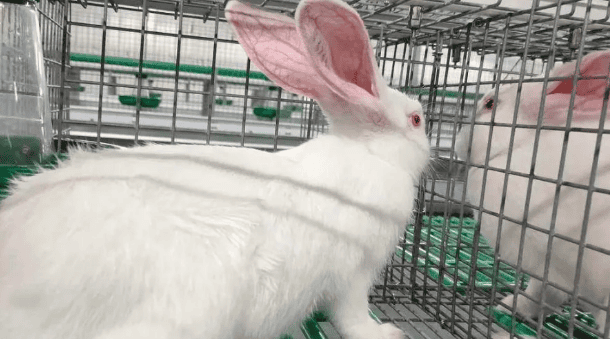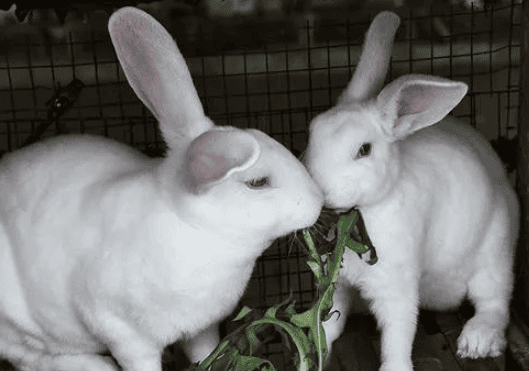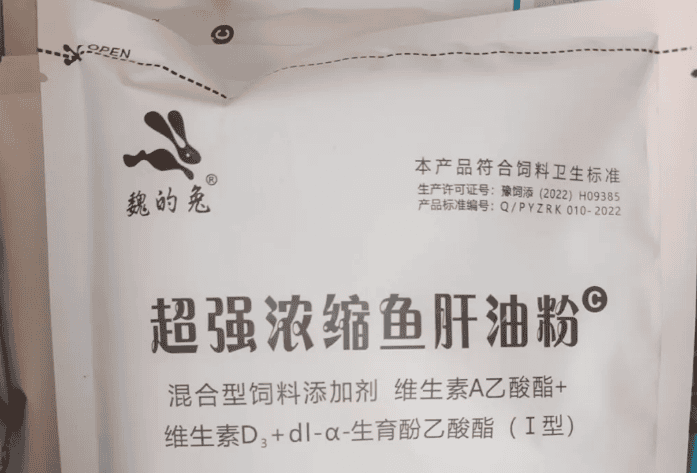Nutritional imbalance refers to a series of health problems caused by excessive or nutritional deficiency in the body due to insufficient or excessive food intake or imbalance of nutritional proportions. Nutritional imbalance will affect the normal growth, development, metabolism and immune function of rabbits, and increase the risk of disease.
The nutritional imbalance of breeding rabbits is manifested in three aspects: nutritional deficiency, excess nutrition, and nutritional imbalance.
Nutritional deficiencies
If the nutritional value of the feed is low or the amount given daily is insufficient, the nutritional needs of the female rabbit cannot be guaranteed, and the female rabbit will have a rough and matte coat. , thin body, arched back and other symptoms. When a female rabbit is too thin, the endocrine system will be affected, the gonad secretion will be imbalanced, and the estrus cycle will be prolonged. At the same time, the uterine mucosa is very thin, and it is not easy to conceive even if she is mated. If the nutritional level is too low, the secretion of gonadotropin-releasing factor from the hypothalamus is inhibited, and the secretion of other hormones is also affected. Endocrine disorders affect embryo survival, leading to a decrease in reproductive rate.

Excess nutrition
The nutritional level of the feed is too high, or the input The amount of feed is often excessive, making the female rabbit too obese. Overweight female rabbits have a high body fat content, and there is a lot of fat deposited in the fallopian tube wall, which reduces the elasticity. It is difficult for the egg to move to the ampulla of the fallopian tube, which hinders the combination of sperm and egg.
Nutritional imbalance
The protein, fat, and carbohydrates in the feed should be in a reasonable proportion, otherwise the feeding effect will be affected. Taking Rex rabbits as an example, the feeding standards are as follows: crude protein content 17-18, crude fat 3-5, digestible energy per kilogram of feed 10-11 megajoules, and crude fiber 12-15. If the amount of corn is large (digestible energy per kilogram of feed reaches 12 megajoules) and the amount of protein feed is small (crude protein is less than 15), the breeding rate of breeding rabbits will be reduced.
Vitamin deficiency:
Vitamins related to reproduction include vitamin A, vitamin D, vitamin B1, and vitamin E.
Vitamin A: Vitamin A plays an important role in the growth, development, reproduction, and disease resistance of rabbits. It is an indispensable substance for maintaining the normal epithelial cells of various tissues and organs. Lack of vitamin A leads to keratinization of epithelial cells in reproductive organs, resulting in decreased reproductive system function.

Vitamin D: Vitamin D can promote the absorption of calcium in rabbits and promote the growth of rabbits. . If it is lacking, rabbits will have soft bones and hindered reproductive ability.
Vitamin E: Vitamin E, also known as tocopherol, plays an antioxidant role in rabbits and can prevent the oxidation of unsaturated fatty acids in the body. When rabbits are deficient in vitamin E, the unsaturated fatty acids in the rabbit's body are excessively oxidized and produce excessive peroxides, which can cause changes in the morphology and function of reproductive organs, destroy reproductive cells, and cause reproductive disorders.

Vitamin B1: Vitamin B1, also known as thiamine, is responsible for sugar metabolism in rabbits. Coenzyme moiety in ketoacid oxidation and decarboxylation reactions. When vitamin B1 is lacking, pyruvate metabolism is blocked, causing pyruvate to accumulate in the brain and blood, causing poisoning. Due to blocked sugar metabolism and insufficient energy supply, resulting in neurological dysfunction, female rabbits will have ovarian atrophy, follicular development stagnation, embryos are absorbed and become empty, pregnant female rabbits will have stillbirths and miscarriages, and their offspring will have weak vitality and poor lactation after delivery. Decline etc.

 扫一扫微信交流
扫一扫微信交流
发布评论